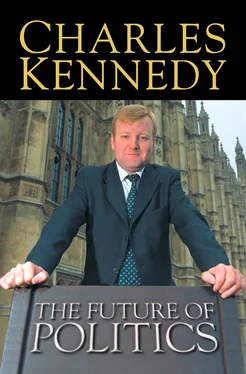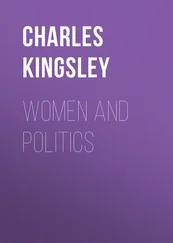The third principle is fairness. Taxes must be applied and collected in a fair way. It is grossly unfair that, at the moment, someone who earns £8,000 pays the same rate of income tax as someone earning £25,000. We should demand the greatest contribution from those with the greatest ability to pay. I strongly favour asking those who earn over £100,000 a year to pay more, through the introduction of a 50 per cent rate for anything earned over that figure. That would enable us to help the worst off in Britain, by taking around half a million people out of paying income tax altogether.
The fourth is sustainability. Taxes must favour job creation and the environment. Rather than being seen as the government’s penalty upon the wage earner, taxes must be presented as the means by which we achieve a fairer and healthier society. Cutting tax for the low paid would be a major step in helping to create jobs and encourage people into work. Tax should also be used to discourage pollution by taxing the use of fossil fuel energy sources and the use of harmful chemicals in industry. The money raised can be used to reduce tax in other areas, so that people are not hit twice. I want to see logic prevail in the way taxes are used. For instance, putting money from petrol taxes straight into asthma research or money from tobacco straight into cancer research. At present, some industries are able to undermine people’s health – whether by the sale of cigarettes, alcohol, junk food, or by pollution. Taxing them is one way of redressing the balance, so that they start to pay some of the costs they are presently imposing upon us.
There has to be a shift in the way the money gathered from taxation is spent. We would set our long-term policies with the aim of building a fairer society: reforming and investing in education; giving more of the nation’s wealth to the NHS; increasing job opportunities for the long-term unemployed and others disadvantaged in the workforce; making more affordable housing available; and working for a healthy environment. With a Social Justice Audit in place, the government would have to state its aims for social spending and report each year on how well these were being met. That way, we could see whether policies were in fact expanding opportunities and promoting a more equal Britain. There was a time when manifestos were a new concept: that government should say in advance to the electorate what it intended to do was a strange idea. In the modern world, surely it should not be too much to require the government to explain whether it is achieving its promises. It is the logical progression of the manifesto.
We could also achieve better results through different types of spending. In education, we have to focus new spending on early years education to give children the best possible tuition in core skills of reading and writing. In the area of health, much greater attention needs to be paid to preventive medicine, and it needs to be realized that environmental factors make an enormous impact on health. That could mean GPs being able to prescribe home insulation as a preemptive treatment, instead of waiting until somebody is ill with pneumonia before treating them.
Britain clearly needs a more efficient and accountable tax system to fund a programme of social repair, but more money is seldom the only answer, and sometimes pouring resources into a bottomless pit can exacerbate the problems it was supposed to solve. The state has a duty to act as a safety net, but it has an equally pressing duty not to become a permanent crutch, lest people lose the will to walk themselves. We need to be agile in our thinking when it comes to bridging the deep social divides at the heart of Britain and, rather than simply providing funds on tap, we have to encourage individuals and communities to help themselves.
The responsibility for social disparities and their swift repair lies with the state, but many of the means to effect long-lasting change lie beyond it. The state should encourage and support the groups with the know-how and utilize their expertise.
This has not been happening because too often governments have taken a dim view of the voluntary sector as a whole. Perhaps because those in power draw a salary for running the country, there is a dangerous view that only the salaried are competent. Volunteers – even though they often use the same skills by which they can also earn a living – are seen by some as well-intentioned sources of interference. Others feel that a thriving voluntary sector symbolizes the gradual withdrawal of the state from every responsibility apart from the protection of property. It is – so the thinking goes – dangerous to over-encourage charities or voluntary work, lest the government give up altogether.
A vigorous voluntary sector is not a sign that the state is abdicating; instead, it is the sign of a healthy nation. A strong interest and involvement in voluntary groups shows that civic Britain is strong. That there is a lively public spirit, and that citizens are willing to work together for the benefit of others, can only be good news, but this community spirit has been in crisis for the last two decades. While the machinery is still in place, and our nation is enriched by the activities of a diverse and vibrant voluntary sector (Age Concern alone reports 250,000 volunteers nationwide, and receives a third of its annual £27 million income just from donations), the notion of community was dealt serious damage by the egocentric culture of the eighties. How could it be otherwise when the leader of the country said that the pursuit of equality was a mirage and that there was no such thing as society? Meanwhile, as the Pet Shop Boys sang ‘Let’s Make Lots of Money’, city bonuses soared. Benefits for the poor were systematically undermined, while TV advertising extolled the virtues of ambition, self-reliance and basic greed. Small wonder concern for community hit an all-time low.
At the same time, I believe we can only pick through the rubble left by the eighties for a given time, and that time is past. After a decade, and a change of government, the time has come to start rebuilding a civic Britain, in which individuals and communities look out for each other.
A thriving voluntary sector signifies a healthy society because it shows people do not expect government to be Sole Solver of All Problems. As a postgraduate student in the early eighties, I spent time in the USA, at Indiana University. This experience proved to be a powerful influence on my view of the world: what impressed me above all about the States was the tremendous can-do energy.
It is interesting to compare the way that people complain about things here and in the States. Here they tend to say, ‘What is the government going to do about it?’; over there, they are as likely to say, ‘Get the government off my back so I can do something about it.’ Americans are also more likely to see government as responsible to the people, rather than accept the state as master. That is more than a turn of phrase – it illustrates a state of mind.
There is a belief, rooted in the American culture, that every individual has huge opportunities as well as a responsibility for their own destiny, which results in a real drive among individuals to carve out their own future. It is a spirit reinforced by the decentralization of power and authority in the USA.
This can take a variety of forms. Jonathan Freedland’s provocative book Bring Home the Revolution: How Britain can live the American Dream 9 Конец ознакомительного фрагмента. Текст предоставлен ООО «ЛитРес». Прочитайте эту книгу целиком, купив полную легальную версию на ЛитРес. Безопасно оплатить книгу можно банковской картой Visa, MasterCard, Maestro, со счета мобильного телефона, с платежного терминала, в салоне МТС или Связной, через PayPal, WebMoney, Яндекс.Деньги, QIWI Кошелек, бонусными картами или другим удобным Вам способом.
has some interesting tales to tell. In Hanover, New Hampshire, the local people bypass government altogether once a year with direct democracy. They meet every May in a school gym and then vote on their own proposals about how the community should be governed. For the rest of the year, citizens can call an emergency meeting through a petition. Their achievements are considerable and even include keeping the ubiquitous McDonald’s out of their town. In Ithaca, New York, the local people staged a successful campaign to prevent the construction of a giant out-of-town Wal-Mart. They also instituted what is now the largest local currency in the world – of which more anon.
Читать дальше












